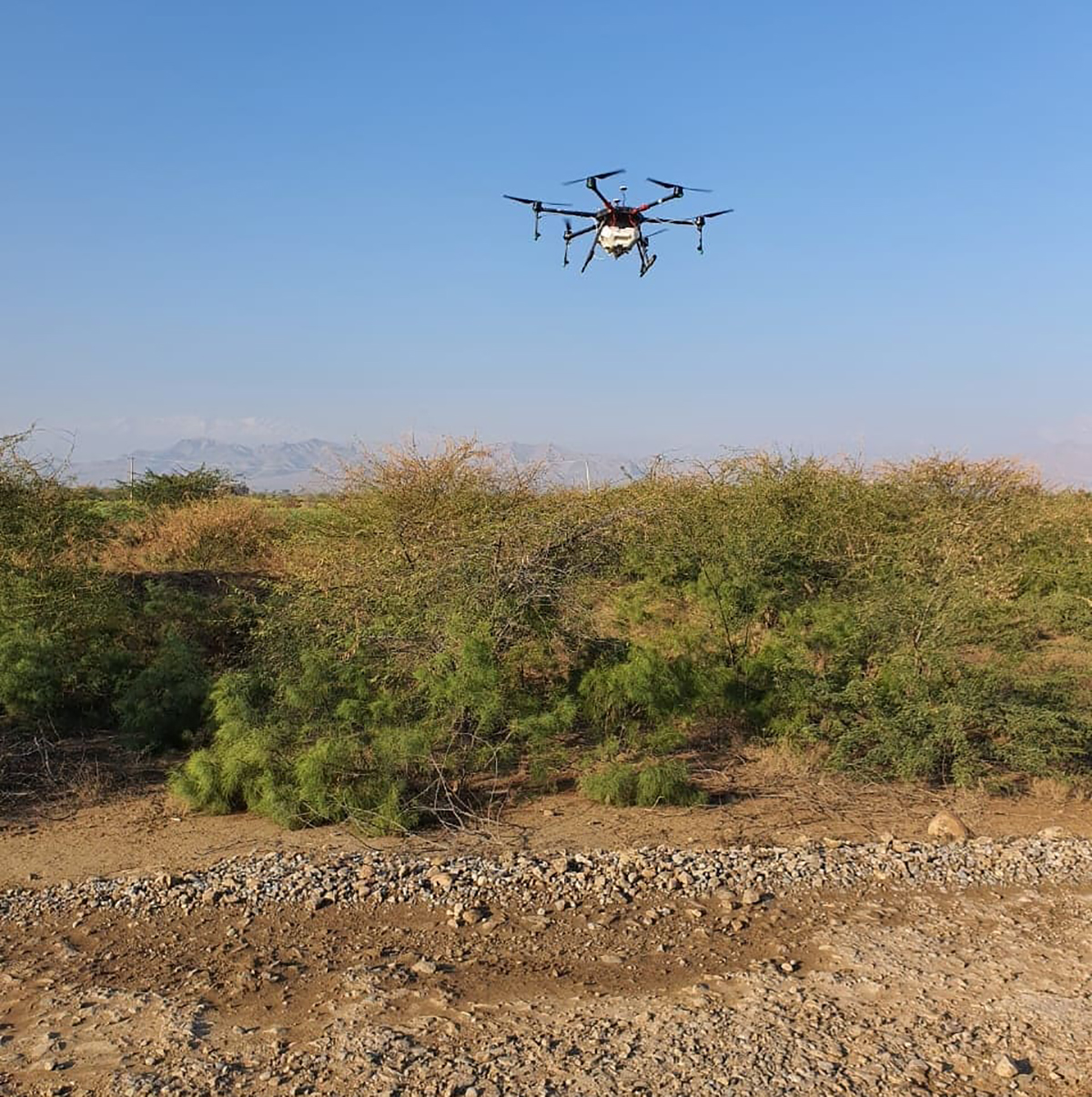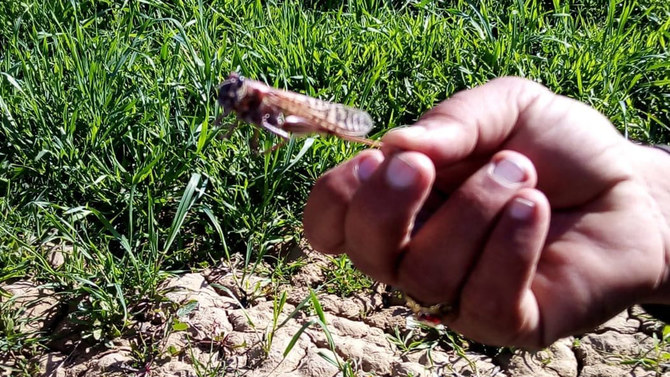PESHAWAR: The Khyber Pakhtunkhwa (KP) government started aerial spraying in Dera Ismail Khan on Wednesday amid a further increase in locust swarms in the impoverished region.
Having devastated crops in parts of Sindh last year, desert locusts are attacking large swathes of the southern region of KP province.
“We have sent a drone to kill and contain locust swarms in Darazinda and Chodwan, two hamlets on the outskirts of Dera Ismail Khan, which share the border with Balochistan province. We are really worried as the insects attacked our main wheat crops. Currently, we use one drone but keeping in view its efficiency, we will acquire four more to thoroughly cleanse the area of the insects,” Rehmat Deen, director general of the KP Agriculture Extension Department, told Arab News on Tuesday.
“The agriculture department uses power sprayers, maruyama, mistblower, micronair, winkle mounted and knapsack sprayers to purge the area of locusts. The KP government is also weighing other options such as giving insecticides to farmers to help them protect their crops from the looming attacks,” he added.

A drone takes off to conduct aerial spraying against locust swarms in Dera Ismail Khan, Khyber Pakhtunkhwa, on Feb. 5, 2020. (Photo courtesy: KP Agriculture Department)
Desert locusts, swarming short-horned grasshoppers, have been destroying crops in Africa and Asia for centuries. Their ability to move in huge swarms with great speed makes them one of the most devastating agricultural plagues.
In January last year, the locusts flew from the Red Sea coast of Sudan and Eritrea to hit Saudi Arabia and Iran. They entered Pakistan’s southwestern Balochistan province in March.
Agriculture expert Anwar Khan Bhittani told Arab News that although aerial spraying would be effective in killing and controlling the outbreak, raising awareness among farmers was of key importance.
“There is a dire need to raise awareness among farmers to inform agriculture officials about the location of locust swarms at night. Aerial spraying should be carried out at night as locusts cannot fly in the dark,” he said.
Abdul Mateen Babar, a farmer from Dera Ismail Khan, said that in his area locusts had invaded ready crops and even trees.
“Before the use of drones, locals used to beat drums in the middle of their crops to frighten them away. I don’t think drone spraying will be effective enough, rather the government should look for a tangible solution such as distribution of pesticides among farmers,” he told Arab News.
According to Bhittani, the central government should launch simultaneous campaigns in all locust-hit provinces to completely eradicate the insects and control their spillover from colder to warmer parts of the country.
“Locusts can travel up to 150 kilometers daily and a female insect lays up to 200 eggs at once. The central government needs to declare a state of emergency to thwart the menace. The insects are not mature yet. They will create havoc if timely measures are not taken,” he said.
















